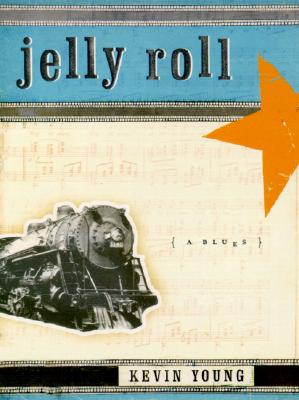Book Review: Jelly Roll: A Blues
Reviewed by:
Rondall BrasherI preface this review by saying that I am an avid fan of the Blues. So, when someone comes along and captures the unmistakable feeling that comes with Blues music, I am very likely to enjoy it. Kevin Young, in his book of poetry, Jelly Roll: A Blues taps right into and dishes up the hypnotic lyrical rhythms of performers from the Mississippi and Louisiana Deltas. Jelly Roll not only captures Blues rhythms, but he instils the essence of the Blues. He also reconnects the branches of Ragtime, Dixieland, Jazz, and Calypso back to their original musical family tree. These interludes almost ache with the symmetry of his Blues.
Kevin Young understands the Blues in a way that is fettered to the objects of his devotion that he can’t seem to hold onto. He writes an Aubade to greet his lover in the morning and a Nocturne to sing her a lullaby about how she has captured him in a feverish mind set.
Jelly Roll is all that you could hope for in a poetic homage to the Blues. The book encompasses the initial Whoa! of meeting a new lover, the bliss of being in a passionate relationship, and finally the fall from grace that inevitably leaves a lover with the Blues. Young brings to life the pain of lost love and the longing of wanting that love back. His poems offer readers an insight to the inexplicable pleasure of his pain. He portrays himself as an romantic bard that is fated to be lovelorn for all time — the proverbial good guy that not only finishes last, but empty-handed.
Like the songs of Robert Johnson, Muddy Waters, Sonny Boy Williams, and Blind Lemon Jefferson, the poems are whimsical tales of sorrow and woe that enticed me to want listen to his stories. Young’s usage of vernacular was akin to watching old films of dancers doing the “Black Bottom”, “Snake Hips”, or &ldquoShimmy” with such fervor that you want to join in. He opens his poems up by interjecting the action of his character. He often closes them with a staggered pentameter of capricious lyrics. The poem Can Can comes across as so bold and true that it could be hummed in G flat and played on a Pentatonic scale.
"Can Can"
I am some sitcom
star-too old
to be actingthis a-way-
You lay meout, KO-
Okay,they say, is an
Africanword-I now
know howa lexicon can
become less, turnto mere mutters & other
word for yes-
Young’s words possess a peculiar eroticism. He provided a sensual content that caused me to visualize juke joints where you could only drink from old Mason jars. His writing sometimes interprets his passions for his lover in suggestive overtures. But it is the structure of his writing that I really found to be most sensuous.
Lyrical is an over-used adjective in our poetic descriptive lexicon. So to avoid a clich´, I will instead say that Young’s wording is expansive and rich. His poems seem to have their own invisible musical accompaniment — from a soloist, to an entire orchestra with a howling brass section. It is very rare that I find myself so impressed by minimalist poetry. In this case the author stuck to the structural integrity of his poetry, which will allow his readers to catch the feeling of his Jelly Roll&.
I never thought I had a sweet tooth, but I am left with the pleasure of wanting to read Jelly Roll again. Kevin Young was obviously well immersed in the Blues before he decided to take this arduous journey. I offer my gratitude to Young for doing a great job of sharing the pleasure of his pain.


